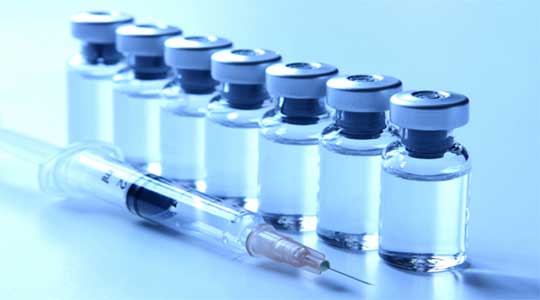
Pfizer and BioNTech are filing for emergency authorization in the US of their Covid-19 vaccine on Friday, November 20.
The FDA will decide if the vaccine is safe to roll out.
It is not clear how long the FDA will take to study the data. However, the US government expects to approve the vaccine in the first half of December.
Data from an advanced trial showed the vaccine protects 94% of adults over 65.
Pfizer’s and BioNTech’s trial involved 41,000 people worldwide. Half were given the vaccine, and half a placebo.
If FDA authorization does come in the first half of next month, Pfizer and BioNTech will “be ready to distribute the vaccine candidate within hours”, the two companies said.
This would be remarkably quick for vaccine development – within 10 months of detailing the genetic code. The average wait for approval in the US is nearer eight years.
On November 19, Pfizer CEO Albert Bourla said that the filing for emergency use was a “milestone in our journey to deliver a Covid-19 vaccine to the world”.
Initial doses would be scarce, though, and the Centers for Disease Control and Prevention (CDCP) will decide who is first in line.
European Commission president Ursula von der Leyen said the EU could move quickly too – by the end of the year.
Pfizer Vaccine Appears to Protect 94% of Adults over 65 Years Old
Moderna Vaccine Shows Nearly 95% Protection Against Covid-19
Coronavirus: Pfizer Vaccine Offers 90% Protection
Data released this week suggested the Pfizer and BioNTech vaccine had 95% effectiveness.
This effectiveness was also consistent across age groups – essential given the vulnerability of the elderly – as well as ethnicities and gender.
The vaccine also had only mild-to-moderate and short-lived side-effects.
It uses an experimental approach, called mRNA, which involves injecting part of the virus’s genetic code into the body to train the immune system.
Antibodies and T-cells are then made by the body to fight the coronavirus.
The US this week passed 250,000 deaths in the coronavirus outbreak, by far the largest number in the world.
Its confirmed cases since the pandemic began stand at 11.7 million, according to Johns Hopkins University research, again a global first.
Cases have also been soaring over the past week, reaching record daily highs.
